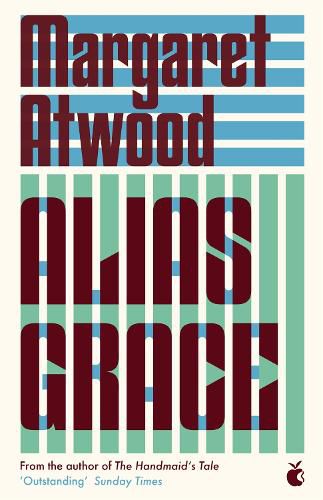Readings Newsletter
Become a Readings Member to make your shopping experience even easier.
Sign in or sign up for free!
You’re not far away from qualifying for FREE standard shipping within Australia
You’ve qualified for FREE standard shipping within Australia
The cart is loading…






In 1843, a 16-year-old Canadian housemaid named Grace Marks was tried for the murder of her employer and his mistress. The sensationalistic trial made headlines throughout the world, and the jury delivered a guilty verdict. Yet opinion remained fiercely divided about Marks - was she a spurned woman who had taken out her rage on two innocent victims, or was she an unwilling victim herself, caught up in a crime she was too young to understand? Some believe Grace is innocent; others think her evil or insane.
In Alias Grace, Margaret Atwood reconstructs Marks's story in fictional form. Her portraits of nineteenth-century prison and asylum life are chilling in their detail. The author also introduces Dr. Simon Jordan, who listens to the prisoner's tale with a mixture of sympathy and disbelief. In his effort to uncover the truth, Jordan uses the tools of the then rudimentary science of psychology. Dr. Simon Jordan is an up-and-coming expert in the burgeoning field of mental illness, is engaged by a group of reformers and spiritualists who seek a pardon for Grace. He listens to her story while bringing her closer and closer to the day she cannot remember.
What will he find in attempting to unlock her memories? Is Grace a female fiend? A bloodthirsty femme fatale? Or is she the victim of circumstances? But the last word belongs to the book's narrator - Grace herself.
$9.00 standard shipping within Australia
FREE standard shipping within Australia for orders over $100.00
Express & International shipping calculated at checkout
In 1843, a 16-year-old Canadian housemaid named Grace Marks was tried for the murder of her employer and his mistress. The sensationalistic trial made headlines throughout the world, and the jury delivered a guilty verdict. Yet opinion remained fiercely divided about Marks - was she a spurned woman who had taken out her rage on two innocent victims, or was she an unwilling victim herself, caught up in a crime she was too young to understand? Some believe Grace is innocent; others think her evil or insane.
In Alias Grace, Margaret Atwood reconstructs Marks's story in fictional form. Her portraits of nineteenth-century prison and asylum life are chilling in their detail. The author also introduces Dr. Simon Jordan, who listens to the prisoner's tale with a mixture of sympathy and disbelief. In his effort to uncover the truth, Jordan uses the tools of the then rudimentary science of psychology. Dr. Simon Jordan is an up-and-coming expert in the burgeoning field of mental illness, is engaged by a group of reformers and spiritualists who seek a pardon for Grace. He listens to her story while bringing her closer and closer to the day she cannot remember.
What will he find in attempting to unlock her memories? Is Grace a female fiend? A bloodthirsty femme fatale? Or is she the victim of circumstances? But the last word belongs to the book's narrator - Grace herself.
See what the Readings’ team have to say on the blog, discover related events and podcast episodes.
Learn more about the names you half-remember from school (and those you don't!), with these compelling novels about real people from history.
Margaret Atwood is a bestselling and award winning Candanian writer, whose work spans fiction, poetry and essays. She's best known for her dystopian novel The Handmaid's Tale and it's Booker Prize winning follow-up, The Testaments.